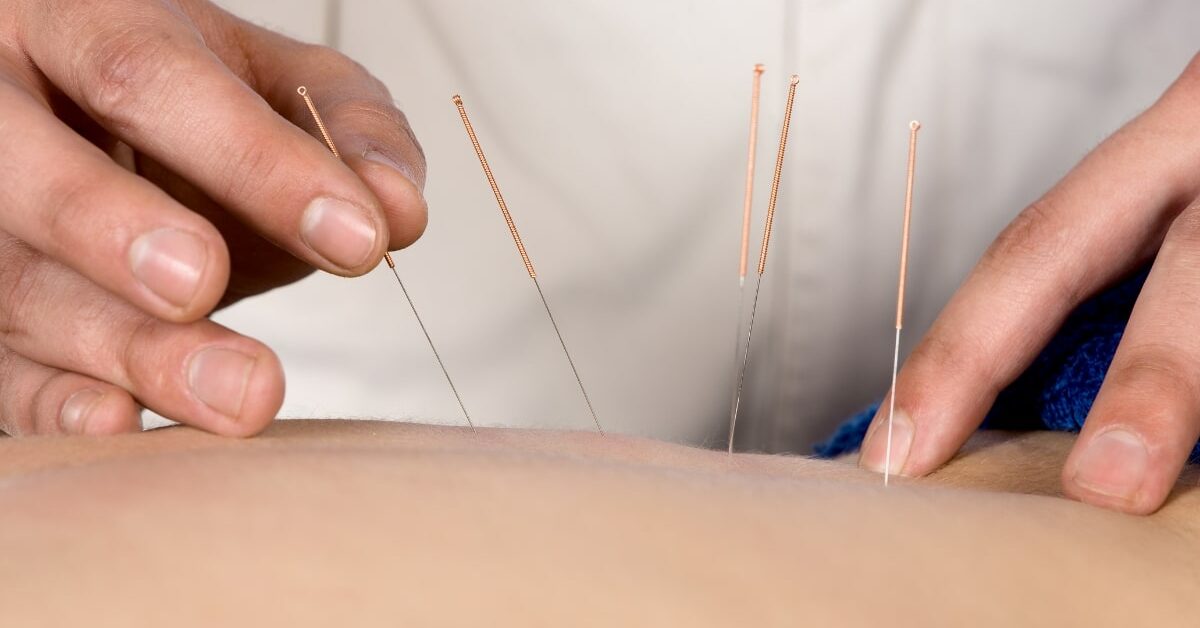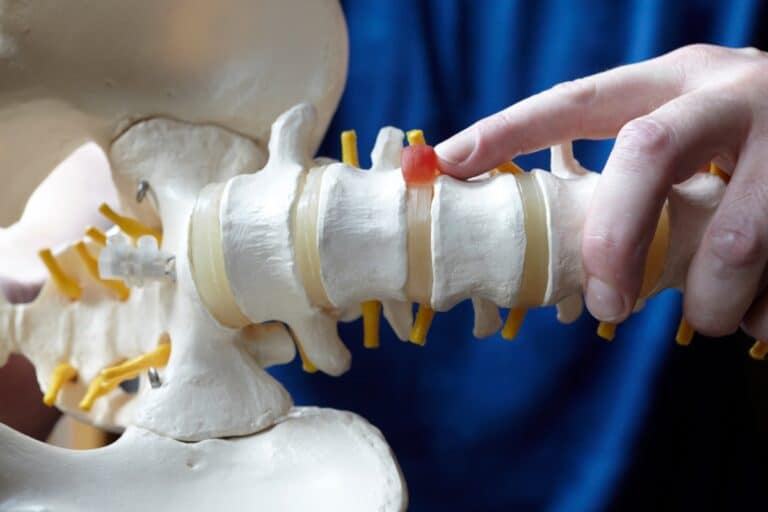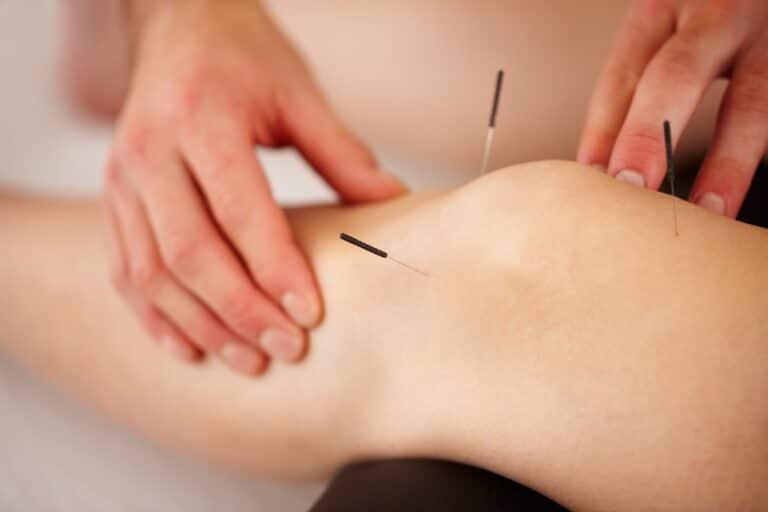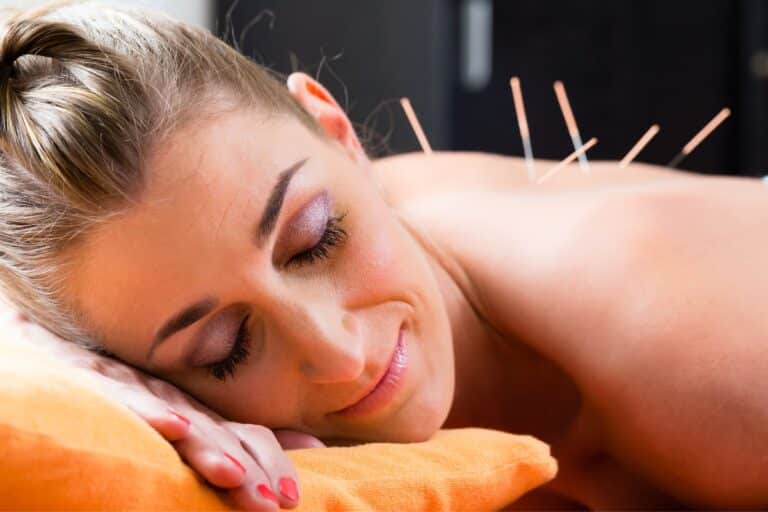Acupuncture Munich » When does acupuncture start to help? Insight and guide to effectiveness
In today’s world, where stress and hectic pace characterize everyday life, more and more people are looking for alternative healing methods that not only calm and heal the body, but also the mind. One of these methods, which has been around for thousands of years, is Acupuncture. Originating from traditional Chinese medicine (TCM), acupuncture has established itself worldwide and is used to treat a wide range of complaints. From chronic pain to mental stress and inflammation, acupuncture offers a gentle but effective way to restore physical and mental balance. In this article, we delve into the world of acupuncture, explore when it helps, and how different people respond to this fascinating treatment.
I. When does acupuncture start to help?
A. Insight into acupuncture and when it starts to work
Acupuncture, a pillar of traditional Chinese medicine, is based on the assumption that life energy, the so-called Qi, flows through specific pathways, the meridians, in the body. By inserting fine needles at specific points, the flow of energy is supposed to be influenced, thus improving physical and mental well-being. But when does acupuncture start to work? The answer varies from person to person, depending on the type and severity of the complaints and the individual state of the Qi. In general, some patients may experience immediate relief of their symptoms, while others may only notice improvements after several sessions.
B. Different response times of the body to acupuncture
The body’s response time to acupuncture is as individual as the people themselves. While some feel a significant improvement after the first treatment, others need more time to experience the positive effects. Factors such as the duration and severity of the condition, general health, and lifestyle play a significant role in the body’s response. It is also not uncommon for patients to experience what is known as an initial exacerbation – a temporary worsening of symptoms that is considered part of the healing process. It is important to be patient and follow the acupuncturist’s recommendations to achieve the best results.
II. acupuncture and the link to traditional Chinese medicine (TCM)
A. Basics of TCM and acupuncture
Traditional Chinese medicine (TCM) is a millennia-old healing science that encompasses a deep understanding of the human body and its connection to nature. At the core of TCM is the belief that health depends on harmony and balance within the body and between the body and its environment. Acupuncture, as an essential part of TCM, aims to promote this balance by regulating the flow of Qi, the life energy. Fine needles are inserted at specific points, known as acupuncture points, in an attempt to remove blockages in the flow of energy and activate the body’s self-healing powers.
B. The role of the life energy flow Qi
Qi is the central concept in TCM and refers to the vital life force that flows through all living beings and nature. It is assumed that an undisturbed and balanced flow of Qi is essential for health and well-being. Disruptions or blockages in the flow of Qi can lead to various physical and mental complaints. Acupuncture aims to remedy these disorders by supporting the body’s self-regulating mechanisms, harmonizing the flow of energy, and thus helping to restore health.
III. Typical areas of application of acupuncture
A. Acupuncture for chronic pain
Chronic pain is one of the most common areas in which acupuncture is used. Many people who suffer from long-term pain, such as back pain, arthritis, or headaches, find effective relief from acupuncture. The method can help to reduce the intensity of pain, reduce the frequency of pain episodes, and improve overall quality of life.
B. Acupuncture for psychological stress
In addition to the treatment of physical complaints, acupuncture is also increasingly being used to treat psychological stress, anxiety, and depression. Through the targeted stimulation of certain acupuncture points, it can help to relax the mind, restore emotional balance, and thus promote general well-being.
C. Other areas of application and their effectiveness
Acupuncture is also used for a variety of other health problems, including digestive disorders, sleep problems, allergies, and skin conditions. It is also used to support smoking cessation and weight loss. While the effectiveness of acupuncture depends on various factors and varies from person to person, numerous studies and patient reports confirm the positive effects of this traditional healing method on a wide range of complaints.
IV. Experience with acupuncture
A. Personal experiences and patient reports
The experiences of individual patients can often say more about the effectiveness of a treatment than many scientific studies. In the case of acupuncture, personal reports range from significant pain relief to astonishing improvements in allergies and chronic complaints. Veronika Wünsche, a patient at the Beindorff practice, highlights how ear acupuncture has helped her with years of back pain. Another patient, known as M.S., emphasizes the pain relief and is looking forward to further sessions. L.B. describes how, in addition to the back pain, his lack of energy has also been reduced by the moxa treatments. M.B. in turn reports a remarkable improvement in his allergies and back pain, which led to an improvement in his quality of life that he had not previously thought possible.
B. The science behind acupuncture – placebo effect vs. real effect
The science behind acupuncture is complex and often hotly debated, particularly concerning the placebo effect. While critics claim that some effects of acupuncture may be placebo-based, numerous studies show that the treatment can produce physical changes in the body beyond psychological effects. These include stimulating the release of pain-relieving and mood-enhancing substances as well as improving energy and blood flow. The key often lies in personal experience: many patients report significant improvements in their symptoms that go far beyond what a placebo effect could achieve.
V. Acupuncture at Praxis Beindorff – A holistic approach
A. Introduction to Praxis Beindorff and its approach
Praxis Beindorff, located in Kreuzstraße in Munich, stands for a holistic approach to healing that goes far beyond the mere treatment of symptoms. Maximilian Beindorff, the founder, combines his extensive experience from different cultures with in-depth expertise in moxa therapy and TCM acupuncture to create individualized treatment plans tailored to the specific needs of each patient.
B. Special techniques and treatments offered at Praxis Beindorff
Various acupuncture techniques are used at Praxis Beindorff, including ear acupuncture and moxa treatments. These methods aim to improve the flow of Qi and thus treat a variety of ailments. Patients such as M.S. and L.B. confirm the effectiveness of these techniques in relieving back pain and lack of energy. M.B. even reports a significant improvement in his long-standing allergies and back pain. These reports underline the success of the holistic approach of the Beindorff practice and offer insights into the many possibilities that acupuncture and moxa therapy can offer for health and well-being.
VI. How to prepare for an acupuncture session
A. Preparatory measures for patients
Preparing for an acupuncture session can help ensure that the treatment is as effective as possible. Patients should wear comfortable clothing that can be easily rolled up or adjusted to allow access to the acupuncture points. It is advisable to eat a light meal before the session to prevent possible dizziness. Patients should also be adequately hydrated, but should not consume large amounts of caffeine or alcohol immediately before the session. It is helpful to have a list of current medical conditions and medications taken to hand.
B. What to expect during and after the session
During the acupuncture session, fine needles are inserted into specific points on the skin. The punctures are usually barely noticeable. It is normal to experience a feeling of relaxation or even slight drowsiness during the treatment. After the session, the treated areas may be slightly sensitive. Many patients report a feeling of relaxation and well-being that lasts for hours to days after the session. It is recommended to drink plenty of water after the treatment and avoid physical exertion to help the body heal.
VII. Frequently asked questions about acupuncture
A. Duration and frequency of treatment
The duration and frequency of acupuncture treatments vary depending on the patient’s condition and response. Typically, a single session lasts between 20 and 60 minutes. Many practitioners recommend an initial series of 6 to 12 sessions, once or twice a week. After this initial phase, treatment is adjusted according to individual needs and progress made.
B. Safety aspects and side effects
Acupuncture is generally considered safe when performed by a qualified practitioner. Possible side effects are minor and may include slight bleeding, bruising, or pain at the needle sites. In rare cases, dizziness or a brief feeling of fainting may occur. Patients should inform their acupuncturist of any medical conditions, pregnancy, or use of blood thinners to ensure the safety of the treatment.
VIII. Acupuncture as a path to harmony and balance
In summary, acupuncture, a time-tested pillar of traditional Chinese medicine, offers a promising option for those seeking an alternative or complementary treatment for a variety of ailments. From chronic pain and psychological distress to allergic reactions and general malaise, the testimonials and scientific studies suggest that acupuncture can provide an effective solution.
The personal experiences of patients, such as those at the Beindorff practice, reinforce the credibility and effectiveness of acupuncture. However, it is important to remember that response to acupuncture varies by individual, and a professional consultation is essential to determine the best treatment plan for your specific needs.
If you are suffering from ailments that have not previously been treated effectively, or if you are looking for a natural and holistic way to improve your overall well-being, acupuncture could be the answer. We encourage you to consult a qualified and experienced acupuncturist to learn more about how this traditional healing method can help you.
The journey to better health and well-being is a personal and individual experience. With the right approach and support, acupuncture can be a valuable part of that journey. Consider the possibility of opting for acupuncture treatment and experience for yourself how this ancient approach to healing can change your life for the better.
Practice Beindorff for Moxa Therapy & TCM Acupuncture Munich
- Kreuzstraße 12
- 80331 Munich
- Germany





